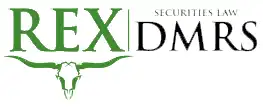According to the U.S. Securities and Exchange Commission, Unauthorized Transactions “are trades that a broker makes for a customer without the customer’s permission or authorization.”
It’s important to understand what constitutes Unauthorized Trading because you may be entitled to damages from the brokerage firm if you suffer losses due to a purchase or sale made by the broker that you did not authorize.
Read on to gain a better understanding of what constitutes Unauthorized Trading and what to do if you think you are a victim.
Discuss your case with experienced investment fraud lawyer Bob Rex at (877) 224-3199 for a free consultation.
What is Unauthorized Trading?
Non-Discretionary Accounts
Unless you have granted your broker specific permission, in writing, to trade your account without first consulting you and obtaining your permission to make a trade, you have a non-discretionary account.
In a non-discretionary account the broker is obligated to obtain your permission, verbally or otherwise, prior to making a trade.
A non-discretionary account is an account where the customer retains control over the decision to make a trade and the customer does not give up the right for the broker to make trades without first consulting the customer. While this type of account may give the investor comfort to know that the broker must first consult with him before making an investment, it does hinder the ability of the broker to potentially maximize an opportunity where quick action is required and the customer may not be available to consult with.
Discretionary Accounts
Just the opposite of the non-discretionary account, in the discretionary account where the customer grants the financial advisor the authority, in writing, to make purchase and sales without first obtaining the customer’s consent for each trade.
This type of account is often referred to as a managed account and a customer typically pays a fixed percentage fee annually based on the assets under management. In a managed account the investor gives the financial advisor the discretion to buy, sell and trade the account on behalf of the investor.
See this for FINRA’s advice to investors on Discretionary Trading.
If you have a non-discretionary account and you suffer damages as a result of investments made by the broker that you did not specifically authorize, you may have a claim for damages. If this type of trading occurs in your account, it is important that you notify the brokerage firm without delay otherwise the firm will later argue ratification on your part since you failed to complain.
The Role of the Broker in Unauthorized Trading
If you have a commission based (rather than a fixed fee) account, the broker is faced with an inherent conflict of interest. The more he trades, the more he makes. In other words, he can control his income by making excessive trades (Churning) in your account.
Since you are not likely to approve of the broker churning your account, the broker may resort to a pattern of Unauthorized Trading in order to generate commissions and thereby increase his personal revenue.
A secondary reason is that the broker may have caused losses in your account and then begins risky and unauthorized investments in an attempt to generate income to offset those losses, hoping that he can accomplish before you become aware of the losses.
We have seen this situation numerous times. The greater the losses, the more risk an unscrupulous broker will take until he has dug a hole it is impossible to escape from.
The Investor’s Perspective
You should review your statements regularly looking for losses and for purchases that were not discussed and approved by you.
Should you identify transactions that are questionable contact an experienced securities attorney and obtain a professional opinion.
Financial Regulations Governing Unauthorized Trading
FINRA Rule 3260 addresses Discretionary Accounts and states at para (b):
“No member or registered representative shall exercise any discretionary power in a customer’s account unless such customer has given prior written authorization to a stated individual or individuals and the account has been accepted by the member, as evidenced in writing by the member or the partner, officer or manager, duly designated by the member, in accordance with Rule 3110.”
Unauthorized Trading is a common abuse seen by securities attorneys. According to recent statistics from FINRA, in 2022 there were 149 customer arbitrations filed alleging Unauthorized Trading.
There is an exception to this rule in the case of margin accounts. In a margin account the investor borrows money from the firm, secured by his investment account, to purchase securities. Under the terms of the borrowing agreement the firm retains the right to sell securities in the account, without seeking additional permission from the investor, if the account value falls below a certain level.
Legal Consequences of Unauthorized Trading
FINRA Rule 3110 requires that brokerage firms approve and review discretionary accounts. Should the broker make unauthorized trades the investor can hold the firm liable for losses on those trades.
In order to attempt to conceal Unauthorized Trading the broker may mismark the trade confirm as being Unsolicited rather than Solicited. An unsolicited trade is one initiated by the investor. A Solicited trade is one imitated by the broker. Follow this link for more information on Solicited and Unsolicited Trades.
Follow this link. to learn more about Unauthorized Trading from actual prior case summaries,
How to Protect Yourself from Unauthorized Trading & What to Do If you Think You Are A Victim
Investors should take the following precautions to avoid becoming a victim of Unauthorized Trading:
- Regularly review statements for unexplained losses and trades that were not reviewed and approved by you
- Review trade confirmations for trades marked Unsolicited
- Contact the firm as soon as possible if you suspect you account is being traded without your authority
- Contact an experienced securities attorney to be advised of your rights.

